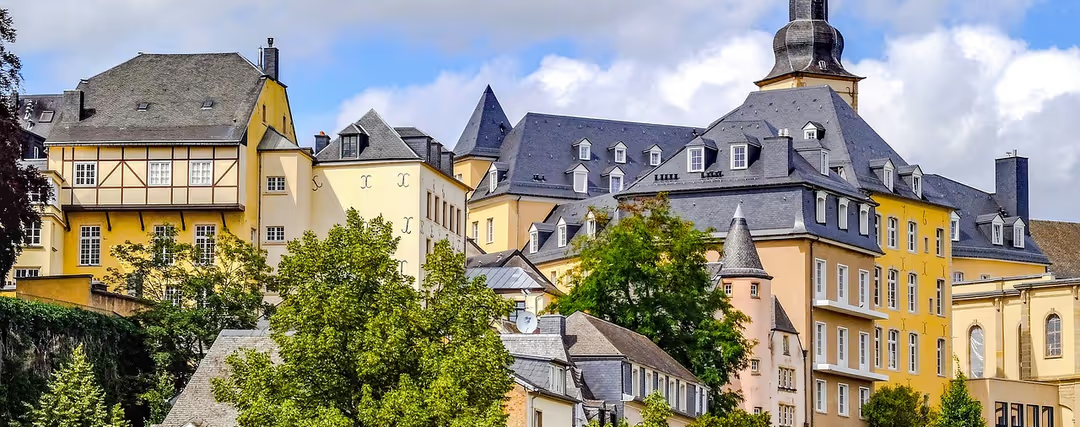

Are you planning your Erasmus in Luxembourg? In this article, we tell you the most important things you need to know about this destination, such as the best cities to study in, the basic options and requirements for international students, what to do during the exchange, information about the different accommodation alternatives you can choose from and the best Universities in the country. Let’s do this!
Several cities are ideal as an Erasmus destination in Luxembourg. The capital, also called Luxembourg, is a combination of history and modernity, with its imposing old town, fortresses and vibrant cultural scene. Another gem is Esch-sur-Alzette, a dynamic and artistic city noted for its multicultural atmosphere. Its green spaces and cultural events make it an attractive destination for those seeking to balance academic and social life. For its part, Dudelange, with its industrial charm and eclectic mix of tradition and modernity, offers Erasmus students a unique experience, where history merges with contemporary life.
A very good reason to choose this country as an Erasmus destination is the language. It has three official languages: Luxembourgish, French and German. Thanks to this, you’ll be able to gain fluency in the language in which you have classes and in the one that’s most spoken in the area of the country where you’ll be living.
The location of the Grand Duchy in Europe is one of its advantages. It shares borders with Belgium, Germany and France, therefore you can easily travel to those countries, and also to other nearby countries such as the Netherlands and Switzerland.
In Luxembourg, you’re going to have the chance to delve into its rich culture through its great monuments and buildings, its smaller, more rural villages, and the lush nature that can be found in all its corners.
It may be a small country, but it has a lot of things to do in its different regions! Here are the most interesting things to visit in each part of the country:
The capital, Luxembourg City, is the financial and political epicentre of the country. The city is characterized by its old town, surrounded by imposing fortifications that bear witness to its military history. Outside the old town, the district of Kirchberg houses European institutions and features modern architecture, creating a fascinating contrast with the historic part.
Known as "Little Switzerland", the Müllerthal region is famous for its breathtaking scenery with rock formations, gorges, and lush forests. It’s a paradise for hiking and nature lovers, offering a peaceful and scenic getaway for those who want it.
The region of the Moselle Valley, crossed by the Moselle River, is known for its vineyards that produce high-quality local wines. Here, picturesque villages set along the river, such as Remich and Grevenmacher, offer the opportunity to taste wines, explore wine culture and enjoy charming riverside landscapes.
To the north of the country, the Ardennes offer a more wooded and hilly landscape. This region is ideal for outdoor activities such as hiking, cycling and exploring medieval castles. Echternach, Luxembourg's oldest town, is located in this area and is known for its historic beauty and proximity to Lake Echternach.
Find the ideal accommodation in your desired location